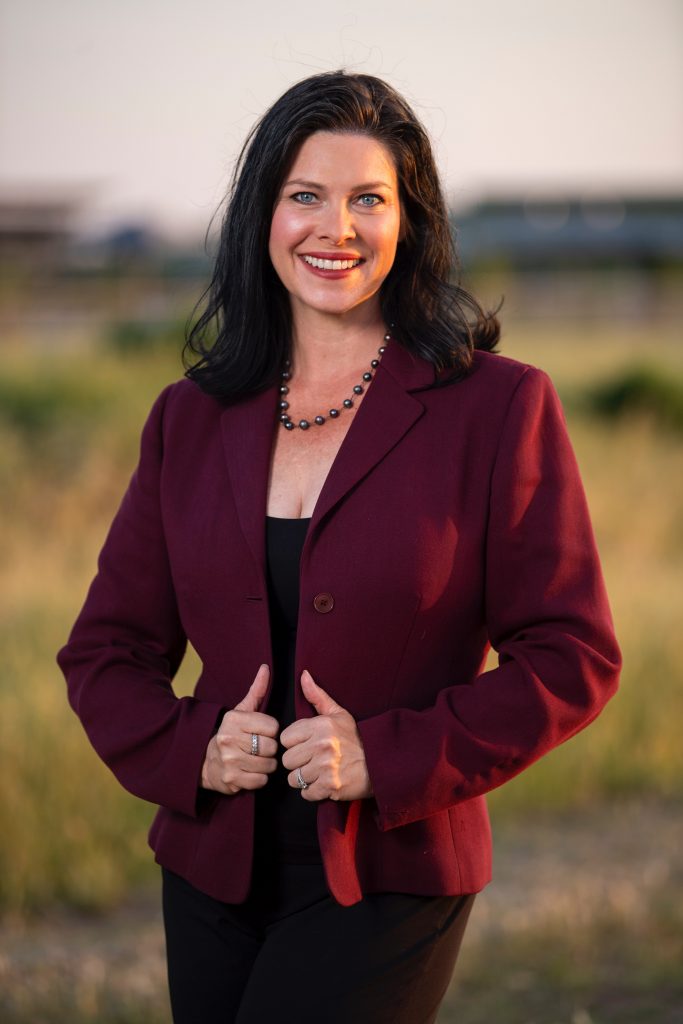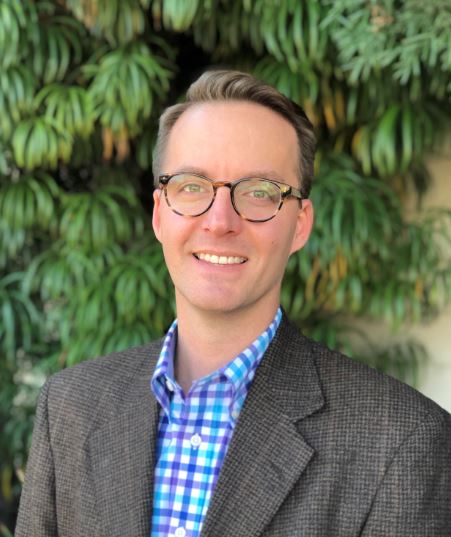By Scott Thomas Anderson
Between a homeless and housing crisis, jarring violence in the streets and the sustained movement for police reform, the last six years have turned the city of Sacramento’s chambers – at times – into an emotional tinder box. Councilmembers have found themselves trying to calm fears of harm and displacement, while also listening to the piercing sound of deep community pain.
It can take a certain steadiness of nerves to hear what’s being directed at the dais and remain focused, professional and guided by rational thinking. The candidates vying to replace District 1 councilwoman Angelique Ashby say that they’ve been through their own trials by fire and know they have what it takes to face the heat.
For Natomas Unified School District board president Lisa Kaplan, one of those moments came last September when the controversial media outlet Project Veritas secretly videoed a teacher at Inderkum High School as he bragged about hoping to indoctrinate students to be Marxist-style revolutionaries. Even though the District hadn’t received a complaint about that instructor, and immediately launched an investigation into him when the video went viral, Kaplan found herself receiving a deluge of online threats, particularly after members of the Proud Boys realized that she is Jewish. The hateful dog pile included alt-right trolls messaging her photos of her house, as well as retweeting pictures of her children. Kaplan’s family had to change their security measures for a time.
Nate Pelczar, the community volunteer and finance specialist who Ashby hopes will replace her, has experienced similar treatment since entering the highly visible race. Pelczar isn’t the first openly gay man to run for Sacramento City Council, but he’s quickly learned that not everyone has come to a place of acceptance. He says that, since declaring, he’s had people drive by his home honking their car horns and shouting homophobic slurs out their windows. Pelczar’s also had crude, anti-gay graffiti painted across the brick wall behind his house. “This is life as a gay man,” he told SN&R. “Even in North Natomas, where people feel isolated and a bit removed, it’s out there … Running for city council isn’t for the faint of heart.”
And Alyssa Lozano, president of the Natomas Chamber of Commerce, was first thrust into the public eye 25 years ago during the most jarring moment of her teenage years: That’s when her best friend, Michelle Montoya, was raped and murdered by a high school janitor three weeks before their graduation. Lozano had to become an adult overnight – and a tenacious one at that, bringing the fight to keep criminals away from school campuses into halls of the state capital. The plight of women in distress hasn’t left Lozano’s consciousness. She recently rescued a woman who was being chased by a dangerous man on the freeway, her own car getting rammed as the perpetrator turned his domestic violence situation into a full-on vehicle pursuit. Lozano had to race the victim to a Sacramento police station to put an end to the nightmare.
Life in the City of Trees is never simple these days; but after extensive sit-down interviews, SN&R is delving into why each candidate believes they’re ready to lead the community forward.
Weathering storms and finding solutions

Kaplan, who moved to Sacramento in 1997 to attend McGregor School of Law, learned quick that being a high-profile member of the city’s Jewish community comes with peril. Her first law job was clerking for attorney Robert “Bob” Harris, a member of Temple B’nai Israel. This was at the moment Sacramento was being rocked by a series of synagogue fire bombings that included B’nai Israel as a target. After police arrested two white supremacists known as the Mathews Brothers – who also murdered a gay couple –Kaplan learned that her boss, Harris, was on the killers’ list of potential prey.
That experience didn’t stop Kaplan from later becoming president of the Sacramento Region Jewish Federation.
She was first elected to Natomas Unified School Board in 2002. Kaplan is now running for city council on a platform of bolstering public safety, mitigating Sacramento’s homeless crisis and finding ways to support the city’s youth as they recover from what they experienced during the pandemic.
Her last concern is acutely felt by families attending Natomas Unified. In Spring of 2020, just a few weeks into the lockdown, one of its schools had two teenagers committee suicide on the same day. Though Natomas Unified was proactively trying to keep its kids from losing ties to education, peer connection and social support, Kaplan stresses that the latest data coming in – and the reports from around the classrooms – indicate that real damage was done during that time.
“Everyone’s seen their kids traumatized,” she explained. “Some of the kids might not be able to talk about some of the trauma they’ve experienced: It’s latent and inherent, and COVID brought about different variations of it, which are going to reverberate through our schools and our society.”
For Kaplan, the district’s forced improvising during COVID taught her lessons about political will. At the outset, Kaplan worked with the district’s attorneys on legally raising $35,000 through GoFundMe for some 25 students who – along with their families – were experiencing homelessness. That money was used get those families into a hotel for 10 weeks, where service providers helped the parents with employment and long-term housing assistance, while the students received food, clothing and support to stabilize their educational needs.
“That was Natomas Unified that did that, not the city or the county,” Kaplan noted. “What that highlighted for me is that we can do things when we really want to. It also made it clear that, in order for these kids to learn, we need to understand they’re more concerned about stability – what’s going on with mom and dad. So, looking ahead, it’s a question of why are the city and county not working more closely together for our homeless kids? We do know who those kids are. That’s the first line we should be addressing, because that’s how we’ll change things for the future.”
Kaplan says she has the longstanding relationships that can bring the city, the county and the region’s school districts into a unified cooperative, one that could make more holistic progress on homelessness, crime, school safety and student health.
“We’ve got to stop blaming and start rebuilding,” she said.
Fixing the problems means understanding the problems

Pelczar isn’t embarrassed to embrace the titles “nerd,” “numbers guy” or “project guru.”
Growing up gay in a devote Roman Catholic family, he had to develop confidence and a genuine sense of self to be able to come out when he was 26. While it wasn’t an easy thing to do, particularly at that time, Pelczar says he’s glad that he started that process of personal acceptance and family acceptance, since it taught him about being true to his own convictions.
“To get over those emotional and mental hurtles was very character-building,” he remembered. “It really made me who I am today, and gave me a thick skin and the ability to take on incredible challenges.”
And Pelczar knows Sacramento has plenty of challenges. His campaign priorities are increasing public safety, working on the homeless and housing debacles, and advancing strategic economic development.
Originally from the Rust Belt, Pelczar moved to Natomas in 2009, where he started learning about Sacramento’s cultural treasures – and its growing problems – by getting involved in organizations like Sacramento Stonewall Democrats and co-founding the Natomas Democrats Club. An expert on financial audits, Pelczar has also volunteered with the city manager’s office, helping it develop new tech tools on that front.
Given that Sacramento has spent hundreds of millions of dollars on combating homelessness in the last six years, only for the problem to be worse by nearly every metric, Pelczar believes that his background in auditing and project execution could be vital in diagnosing what’s gone awry at City Hall.
“I think that’s what actually separates me from my competitors in the race,” he reflected. “I’ve got a unique skill set.”
When it comes to tackling homelessness, Pelczar wants to follow the new direction set forth by District 4 councilwoman Katie Valenzuela, who’s been opening more shelter spaces while consolidating the points of entry to getting help, including access to rapid re-housing, addiction treatment and mental health services.
“The situation with homelessness is a moral failure on the city’s side – on the county’s side,” Pelczar said. “We had, I believe, 60 different points of entry to the unhoused support network … and that’s just not sustainable. That’s a recipe for disaster.”
Pelczar also thinks Sacramento’s affordable housing trust fund needs to be repaired, or have its failures remedied by bringing back the city’s inclusionary housing rules – a position strongly advocated by Valenzuela and councilwoman Mai Vang.
“If I’m a developer, and I can buy my way out for a fraction of the costs of what it would actually cost to build affordable units, then, of course, why wouldn’t I buy my way out?” Pelczar observed. “It’s exactly what the developers wanted. We have to create a system that actually results in the building of affordable housing.”
Pelczar told SN&R that Angelique Ashby has been a valuable mentor to him. He says the role that she sometimes plays in forcing uncomfortable or sensitive topics out into the open, so that the entire public can hear vigorous debate about them, is a role that he would strive to fill, though in his own way.
“All the folks who are running for city council in District 1, we’re not Angelique Ashby – everyone’s unique,” he emphasized. “They’ve got their own personalities, their own motivations. One of the biggest things that I’ve learned from Angelique Ashby is the importance of being up front and honest with the public, and making sure they’re aware of what’s going on. And when we’re having those important discussions, not having them behind closed doors.”
Taking stands

Even before the high school tragedy that changed her life, Lozano wasn’t naïve about threats to public safety. Her father, Mike Lopez, was a 30-year member of the Sacramento Police Department and one of the agency’s first gang detectives. Mike was hit with a shotgun blast early into his career, and Lozano grew up being able to feel, with her fingertips, the 17 pellets still embedded in his head.
But, for this Natomas native, the impact of crime became truly inescapable in 1997. That’s when Michelle Montoya – Lozano’s friend since they were five-years-old – was found with her throat slashed in the wood shop of Rio Linda High School. The man who’d violated Michelle, and then killed her, Alex Dale Thomas, was a known gang member and four-time convicted felon. He on parole at the time for manslaughter, yet school officials allowed him to work as a janitor around students.
“At 17-years-old, I found myself talking to news reporters and demanding answers from the school board, because they never should have let this man near a campus,” Lozano recalled.
That year, Lozano became a voice for her lost friend, working with state Senator Deborah Ortiz and the late assemblywoman Barbara Alby to pass the Michelle Montoya School Safety Act. The law requires background checks and fingerprinting for all employees and volunteers at California schools.
“Even though I would have Michelle back in a heartbeat, and I’d want her here with us, I do believe that her death was not in vain,” Lozano reflected. “That experience taught me that lawmakers and leaders can do good things.”
And so too can everyday people. Lozano demonstrated that just three weeks ago, when she was driving on Interstate 80 near Madison Avenue and spotted a woman literally running through the lanes of traffic. She was desperately trying to escape an allegedly violent man. Lozano helped get the terrified woman to safety, having her car rammed in process by the victim’s pursuer. Their escape ended with arriving at the Sacramento police station on Marysville Boulevard. The man chasing them was arrested on multiple charges and a restraining order was issued for the woman.
But …
“He was out of custody the next day,” Lozano stressed. “That recent situation is really weighing on me. We need to do better for our victims.”
In addition to smart growth, small business development and helping renters becoming homeowners, Lozano is making public safety a major priority for her campaign. Crime rates in Sacramento County have been on the rise for three years. Lozano says that people in Natomas don’t have blinders on about what that means for their families and their quality of life. Lozano also says she has no political fear about supporting police officials in instances when she thinks their ideas will make neighborhoods safer.
“With the recent shootings we’ve had in Natomas, it’s a concern for people,” she pointed out. “On Mother’s Day, we had a shooting at Del Paso and Truxel. There were cars stopped in the street, with people getting out to exchange gun fire. That’s a problem.”
Editor’s note: Robert Alvis, who is also running for city council in District 1, could not be reached for this story. Alvis is a small business owner who lives in Natomas and is deeply involved in Downtown Sacramento’s music and entertainment scene. He has managed events at the historic Crest Theatre and Harlow’s nightclub, and previously worked for The Sacramento Bee and local animal rescue organizations. In a recent interview with ABC10, Alvis said that his priorities were housing, homelessness and safety, as well as cleaning up the Downtown area and restoring order to it, so that Sacramentans feel comfortable coming down there and the corridors’s small businesses can thrive. “If people are happy with what’s happening in the city, I’m probably not their candidate,” Alvis told ABC10.


Be the first to comment on "Crucibles: Sacramento’s District 1 candidates talk mental toughness, overcoming challenges"